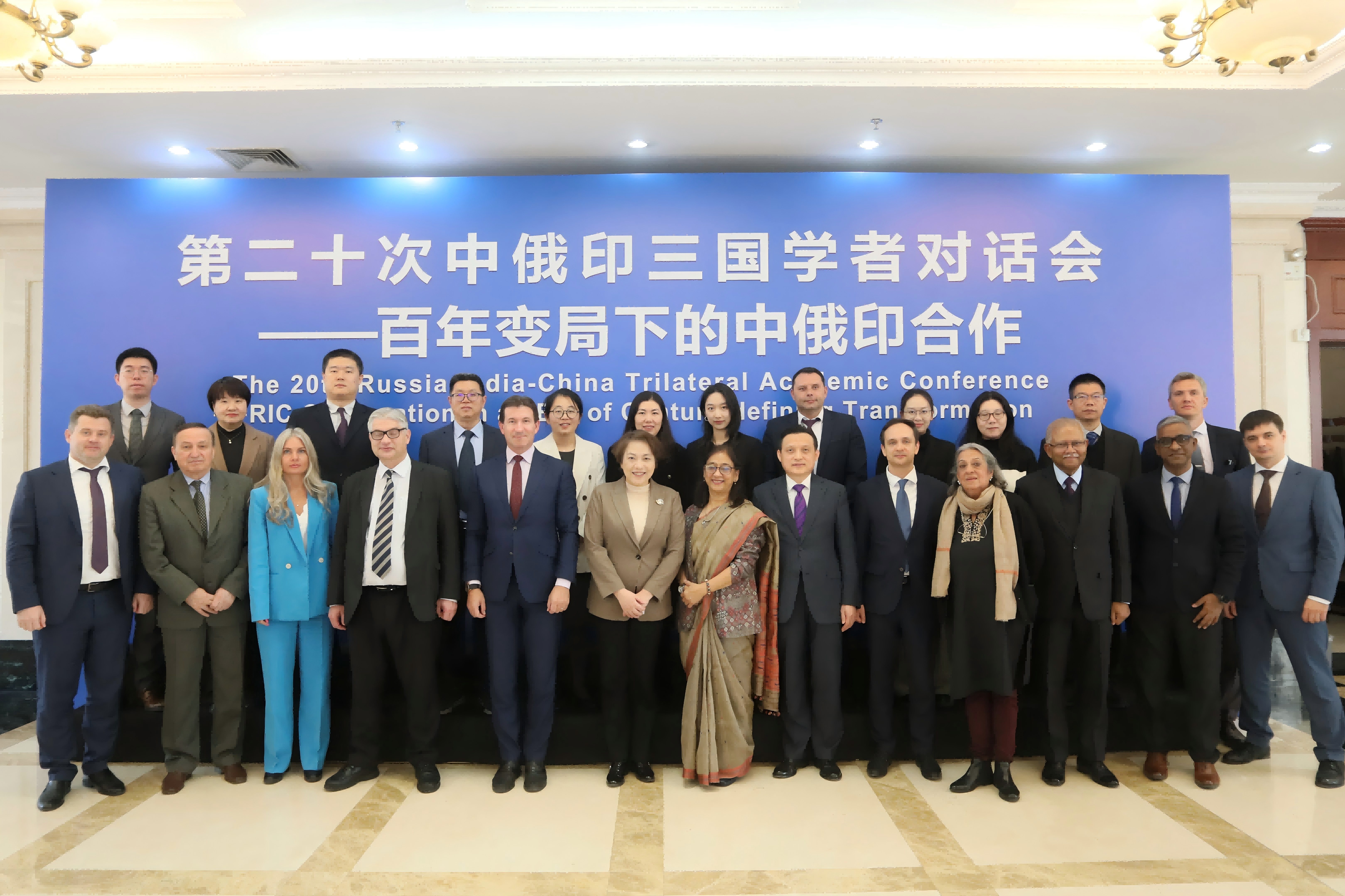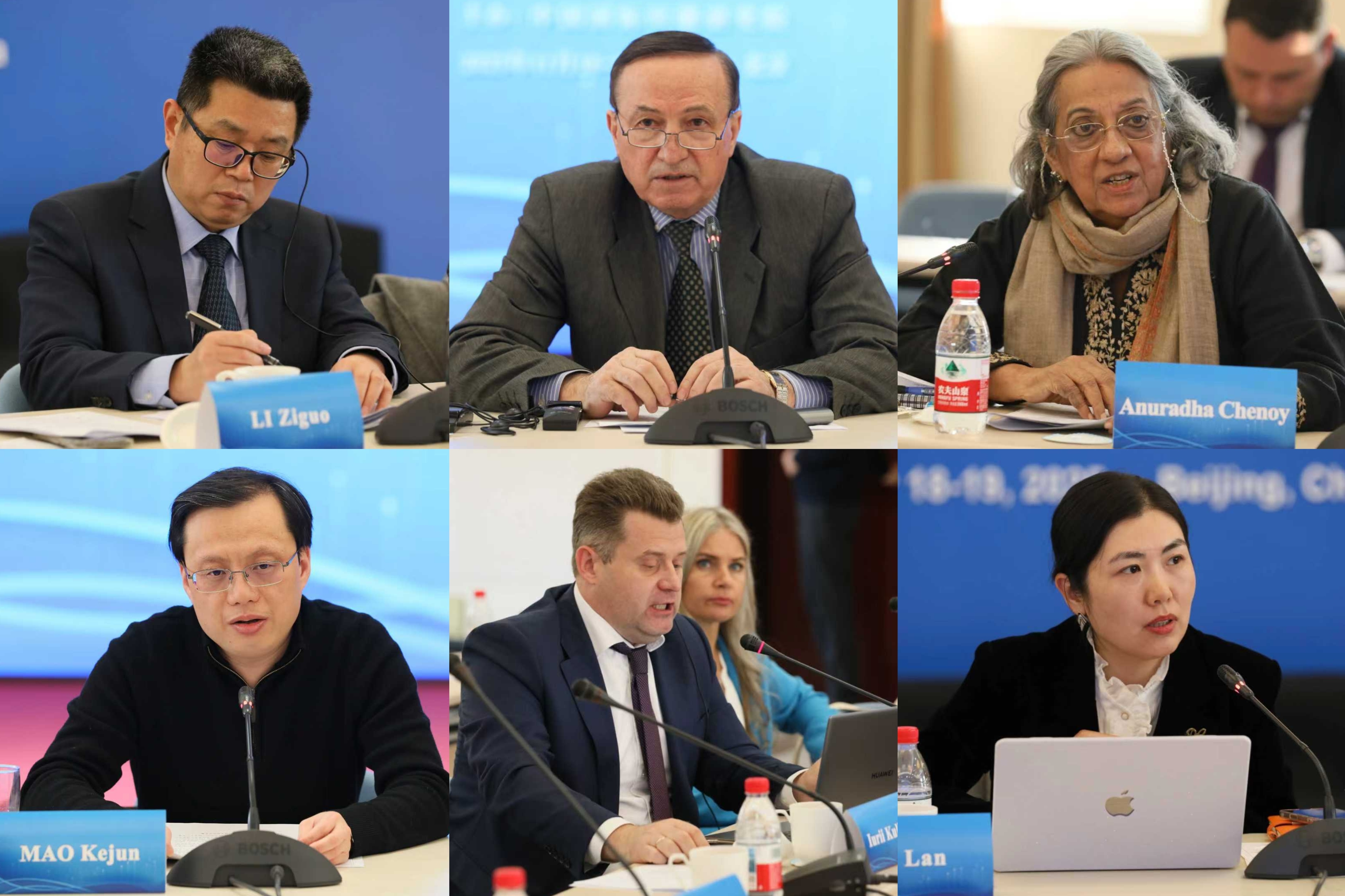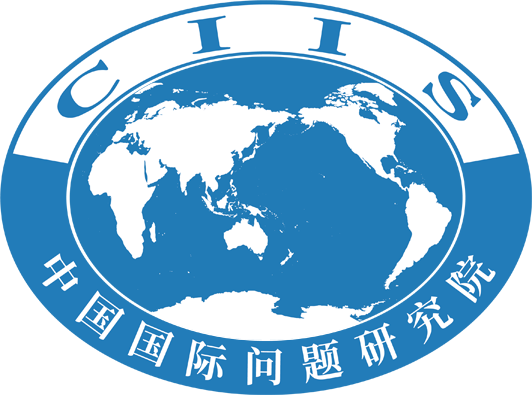The 20th Russia-India-China Trilateral Academic Conference took place in Beijing from November 18 to 19, focusing on the theme of "RIC Cooperation in an Era of Century-defining Transformation".
Vice Foreign Minister Sun Weidong met with the heads of the three delegations. Zhang Maoming, Deputy Director-General of the Department of Asian Affairs of the Ministry of Foreign Affairs of China, and Shakura Dmitry, Counsellor of the Embassy of the Russian Federation in China, attended the opening ceremony and delivered speeches upon invitation.
The delegations were led by Chen Bo, President of the China Institute of International Studies; Kirill Babaev, Director of the Institute of China and Contemporary Asia of the Russian Academy of Sciences; and Alka Acharya, Director of the Institute of Chinese Studies, Delhi. Scholars engaged in in-depth discussions on topics including RIC Cooperation Amid Global Volatility and Century-defining Transformation, RIC’s Role in Driving Multilateral Cooperation and Regional Integration, and Advancing Practical Cooperation Under the RIC Framework.

The participating scholars generally held that the current international situation is marked by factors of turbulence and transformation. While the balance of international forces is becoming more even and multi-polarization is accelerating, unilateralism and protectionism continue to rise, which seriously impacts the multilateral trading system and the stability of global industrial and supply chains, and undermines the authority of the United Nations and the effectiveness of global governance. Peace and development are facing severe and complex challenges.
The scholars noted that the RIC countries, each with a time-honored history and culture, have a combined population of over one third of the world's total. As major countries with global influence, they are key forces in global governance. The scholars argued that RIC should continue to advance multi-polarity, respect the diversity of civilizations and development models, support equal-footed dialogue among different social systems and development paths, and reject ideological confrontation and bloc politics. They emphasized that RIC cooperation should remain non-exclusive and open in nature, target no third party, and oppose camp confrontation. It is dedicated to injecting stability and predictability into the complex and fast-changing international situation and to promoting the development of a more just and equitable international order. This is also the shared aspiration of the majority of countries in the world.

The scholars pointed out that the positive interactions among the leaders of the RIC countries during the SCO Tianjin Summit have given a fresh impetus to trilateral cooperation. In the face of an increasingly complex global situation, it is necessary for the RIC countries to translate broad consensus into concrete actions. They suggested resuming the RIC Foreign Ministers' meeting mechanism to enhance high-level strategic communication, carrying out cooperation in such areas as green transition, public health, counter-terrorism, finance, energy and food security, strengthening coordination on multilateral affairs, and jointly promoting the development of the SCO and BRICS mechanisms.
The scholars stressed that since its launch in 2001, the RIC Trilateral Academic Conference has played a positive role in enhancing mutual understanding and building broad consensus. The three institutions agreed to leverage the role of the mechanism through more avenues, including by enhancing joint research and promoting exchanges among young scholars, to continue contributing think-tank wisdom and strength to RIC cooperation. They agreed that the 21st RIC Trilateral Academic Conference will be hosted by the Institute of Chinese Studies, Delhi in 2026.
During the conference, Dr. Mao Kejun, an expert from the Xi Jinping Thought on Economy Study Center, was invited to deliver a luncheon speech, introducing the core elements of the proposals for China's 15th Five-Year Plan to the attending scholars.




